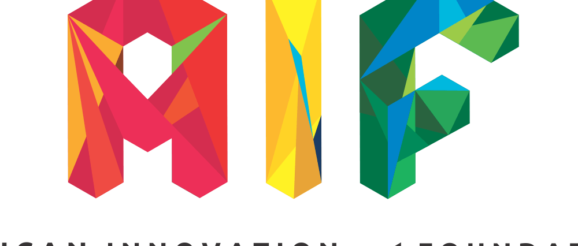The African Innovation Foundation (AIF) has named the top 10 startups that will compete for its prestigious Innovation Prize for Africa (IPA) 2018 awards.
The 10 startups beat more than 3 000 applications from 52 African countries who had submitted their applications in different categories. The categories included ICT, agri-business, public health and the environment/ energy sectors among others.
According to IPA,the top 10 nominees reflect Pan African flavour of Innovation Prize for Africa (IPA).
“Now in its seventh year running, we have witnessed multi-million-dollar businesses emerging from the IPA initiative, with health, environment/energy and agricultural innovations leaving imprints across the African continent and beyond. Our theme this year prompts the need for increased collaboration between government, business, industry, innovation enablers and the community to further realise African prosperity and economic freedom.” Walter Fust, African Innovation Foundation Chairman said.
The top 10 IPA nominees are:
- Biodegradable seed tray for rice farming (Madagascar) – Juslain Nomenjanahary Raharinaivo: Rice is a staple food in many African countries. In Madagascar, seeds are therefore sowed in innovative pots made of paper, called BG or biodegradable germinators. Growers transplant seedlings into easy-to-transplant clumps with very high tilling capacity which also increases rice yields and allow possibilities to expand the area under cultivation.
- Buried Diffuser (Tunisia) – Mr. Wassim Chahbani: The Buried Diffuser saves irrigation water, energy, and use of fertilizers, reducing zero water waste through evaporation. Water is injected directly to the roots, radically reducing water consumption levels used for irrigation.
- Efficient detection of TB and Hepatitis C (Morocco) – Professor Abdeladim Moumen and Dr. Hassan Ait Benhassou: Hepatitis C and Tuberculosis (TB) are critical health burdens in Africa. This innovation comprises two molecular tests for the rapid, accurate and effective detection and load quantification of both diseases. The technology allows specific detection of the hepatitis C or TB genome in blood or sputum samples; tests are clinically validated, simple, accurate and low cost.
- eNose sensor for tea processing (Uganda) – Abraham Natukunda: This innovation applies an “eNose” and analytics platform to supplement current tea processing procedures using low power sensor devices to determine optimum levels of tea fermentation. An analytics platform receives and analyses the sensor data, providing real-time monitoring of key reactive elements and compounds during the tea-processing period, ensuring efficient traceability, prediction, and motion. This innovation will lead to improved control results in better tea quality, boosting marketability and increased revenue for tea processors from each bushel of tea harvested.
- Incas Vaginal Discharge Kit (Ghana) – Dr. Laud Anthony Basing: Incas Vagkit is a 3-in-1 urine-based test kit that examines vaginal infections. Linked to a mobile application, it offers a convenient and fast solution for women experiencing vaginal infections. The Vagkit simply requires a urine sample and can be used at home; results are available within 10 minutes to reduce testing time for vaginal infections in Africa.
- “iThrone” portable toilet (Egypt) – Dr. Diana Yousef: “We shrink it” is a revolutionary approach to removing un-piped sewage. This technology innovation is a disruptive yet low-cost composite polymer membrane that essentially “shrink-wraps crap” aggressively evaporating or “flushing” away the full water content of daily sewage output without need for added heat, energy or flush water.
- Mobile Shiriki Network (Rwanda) – Henri Nyakarundi: The Shiriki Hub is a Smart Solar Kiosk, powered by strong solar panels and equipped with large capacity batteries, Internet of things (IoT) sensors, and a custom designed router, offering device charging, virtual top-ups, and low-cost connectivity.
- Natural solutions for skeletal regeneration and repair (South Africa) – Prof. Keolebogile Shirley Motaung: A multi-method approach using natural products for skeletal regeneration and repair. La-Africa Soother (LAS) is a topical paste ointment for sportspeople as a natural anti-inflammatory cream to treat pain and inflammation. The second product which is Plant-Based Morphogenetic Factor Implant (PBMF) induces bone and cartilage formation.
- Reducing pollution in an eco-friendly way using GKSORB! (Benin) – Dr Fohla Mouftaou: Water hyacinth is an environmental threat in many African countries, invading lakes, rivers, and agricultural fields. The threat affects agriculture, the fishing industry, health and livelihoods. GKSORB is 100% organic and biodegradable fiber with the potential to absorb up to 17 times its weight. Made from water hyacinth, it can be used as a separator for hydrocarbons or as a cleaning agent for surfaces contaminated by various pollutants such as hydrocarbons, acids and paints.
- Waxy II Technology (Tanzania) – Christian Mwijage: His company recycles and transforms post-consumer waste plastic into durable and environmentally friendly plastic lumber using a chemical-free and energy conserving technology called “Waxy ӀӀ technology” for building, construction and furniture production.
To date, AIF has supported 55 IPA winners/nominees with US$ 1 million+ and mobilized 9 400+ innovators from all 55 African countries. AIF endorsement and exposure generated through IPA have seen past winners securing over US$135 million worth of investments to grow and scale their businesses. IPA past winners and nominee company valuations amount to more than US$200 million.
Are you a startup using technology to solve some of Africa’s pressing challenges? We would love to feature you on TechTrendsKE. Drop us an email at info@techtrendske.co.ke or leave us a comment in the comments section below. In the meantime, you can follow or subscribe to our newsletter to ensure you don’t miss out on any updates on African startups.

